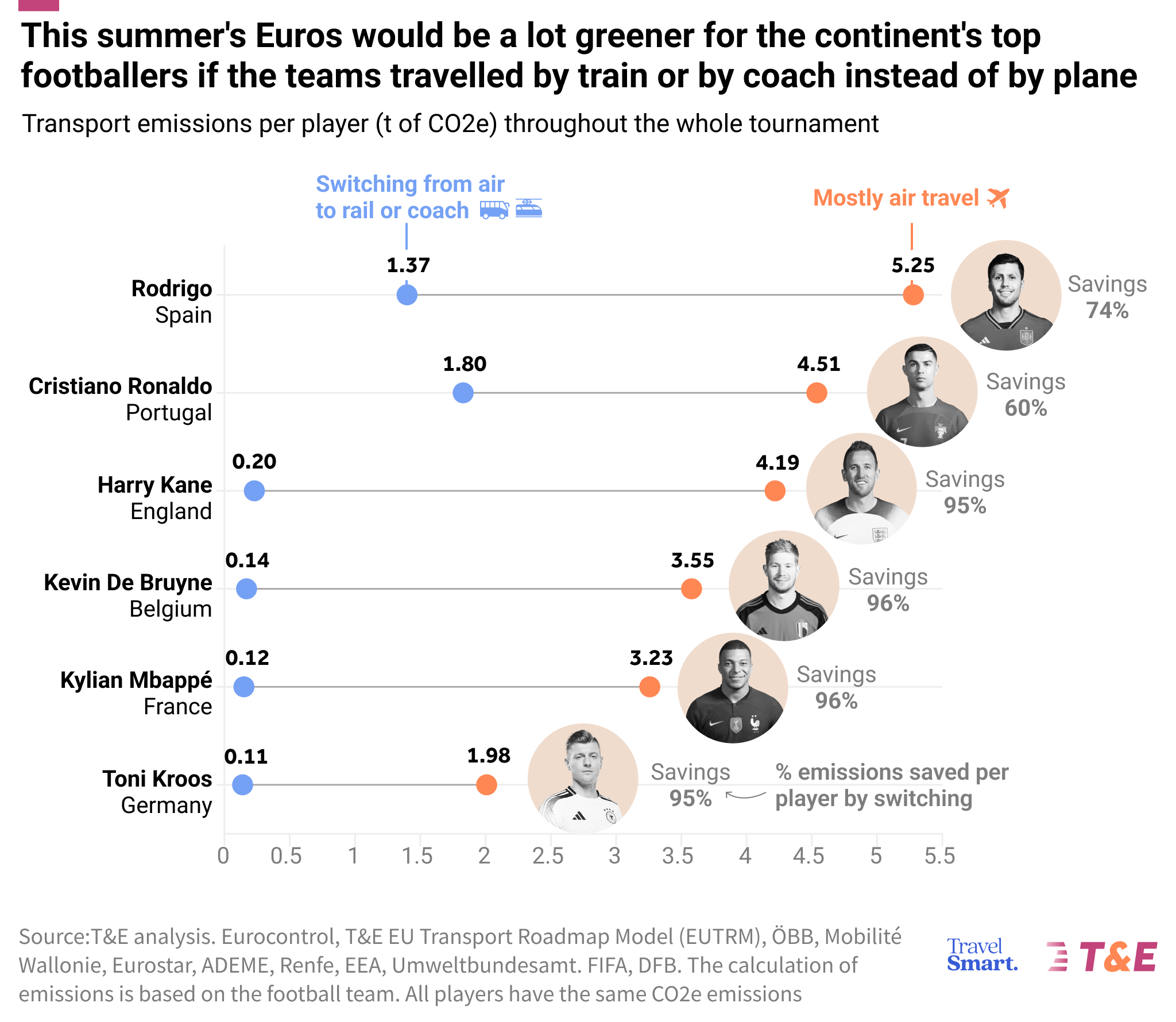Europe’s leading national football teams competing in Germany this summer could cut their travel emissions by nearly 60% if they avoided flying, a new Transport & Environment (T&E) – Travel Smart analysis shows[1]. This is in stark contrast to UEFA (Union of European Football Associations) and the hosts Germany, who have made considerable efforts to promote train travel for fans.
Erin Vera, Travel Smart Campaigner : “UEFA and the hosts Germany have put a lot of effort into cutting transport emissions around the tournament, making it the greenest championships ever. This shows what can be done. Disappointingly the national teams are so far failing to lead by example. If teams chose to avoid taking the plane for journeys that could reasonably be taken by train or coach, they can drastically slash their emissions”.
After coming under criticism four years ago for hosting the Euros in multiple different countries, UEFA has sought to cluster group stage matches to reduce the amount of travelling done by fans[2]. The Deutsche Bahn for its part is offering fans with a ticket reduced prices for travel around the country. It has never been easier to travel to a major sporting event by train, says T&E.
However, the teams themselves have not yet clearly committed to reducing their transport emissions. Last month, T&E along with climate groups across Europe, called on national teams to commit to travelling more sustainably by avoiding flying where possible. Germany and Switzerland are the only national teams to commit to not flying during the group phase. In doing so, Germany will save up to 98% of CO2e.
Over the month-long competition, elite footballers like Harry Kane and Kylian Mbappe will pollute seven to nine times more through their transport emissions alone than what the average person emits over a whole month, the analysis shows.

UEFA’s efforts are also incoherent in light of the fact the 2024-25 football season will see the biggest expansion of European games to date. Europe’s premier tournament, the Champions League, will go from 125 matches to 189. This will mean significantly more flying, warns T&E.
Notes to editor
[1] T&E compared the climatic impact of a flight with the same trips using coach or train.
[2] Average group stage travel time by coach or train between teams’ training camps and matches is below 3 hours.
[3] ‘Travel Smart’ is a global campaign led by Transport & Environment (T&E) within a coalition of partners across Europe, North America and Asia. It aims at reducing corporate air travel emissions by 50% or more from 2019 levels, as the most effective way to significantly reduce aviation’s climate impacts in the present decade.